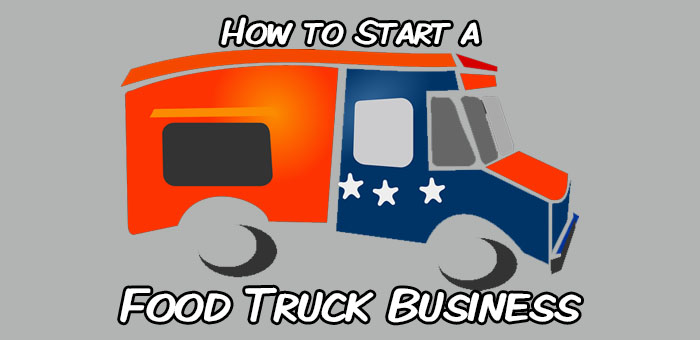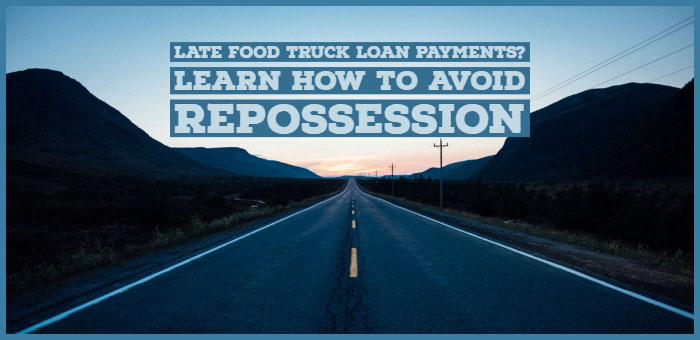Since the recession in 2008, people have been looking for alternative sources of employment for themselves. Toss in a dash of entrepreneurship, and you’ll find that one of the largest growing sector in food service is the food truck industry. To help these potential vendors and the industry as a whole by providing this article to help each individual learn how to start a food truck business and decide if being a food truck vendor is the right career shift for them.
Page Contents
Make a Menu
The first step in this how to start a food truck business guide? Number one, what in the world are you going to sell? There are a huge number of factors you need to look at before you make your decision.
- Where are you located?
- What can you cook?
- What do the people in your area think is worth spending their hard earned money on to feed themselves?
Just as any restaurant owner must decide, you must find out what suites you and your customers. Do you have a gourmet or professional culinary background? Take a simple concept like barbecue, or tacos, and give them a new twist to thrill the crowd.
Once you have determined what you will be selling, you must take the time to perfect your recipes and technique. Have friends and family help you conduct taste tests. If you have enough early investment capital, find a marketing firm to run the tests for you. Find out what people like, and don’t like. Now tailor your menu to the results you receive.
One of the worst things a food truck industry vendor can do is start prematurely. Don’t risk selling your customers bad food. Word of mouth as advertising works both ways. Sure it can be a positive. But, if you are serving poor tasting food, it can be almost impossible to turn that perception around without having to re-brand your entire enterprise.
Vending Locations
Alright, you’ve got it, you know what you can and will be able to sell from your truck. Now what? The next step in this how to start a food truck business guide, you have a product in mind, but whom and where will you sell it? Take look at what type of demographic will be interested in your food.
Are you selling something that the late night bar hopper will be interested in, or will you need to find locations where the customers will have more interest in a gourmet food item, than fries and a hot dog? Travel around your area. Find the local hangouts; find where the majority of the cities foot traffic takes place. If your competitors are going to be brick and mortar restaurants, where are they located?
RELATED: How To Determine Your Food Truck Target Market
Now that you have gathered this information, you will need to find out where you will park your rig. Many municipalities across the country have strict guidelines on where mobile food vendors can park. Take the time to speak with the zoning and parking officials in the areas you wish to sell. Find out how long you can stay in one spot, find out the hours you can park with or without feeding a meter. Another avenue food trucks are using, is parking in open lots.
Contact the owners of the lots, and get their permission to park there, and be sure the permission is in writing. You may need to supply them with times and days of the week you plan to use their lot. Rather than denying their request and risk the lost opportunity to partner on their site, write up a proposal with the required information which both parties can agree to. In most cases a flat fee or a percentage of your sales may be a prerequisite to making an agreement; however, having a regular site for sales can be a great start to getting your business noticed.
Research the Competition
In most high traffic food truck industry communities it will be very difficult to start up a business that will be unique. Once you have determined what type of fare you will be serving to your customers, you must find out who your direct completion will be. Search the streets, the internet and more importantly, use twitter to track them down.
Find out when they operate and what their menu consists of. Be sure to find them and visit their sites. Besides trying to find out what their customers are buying, the more important aspect of your clandestine efforts should be to taste their product. If it’s possible, come back on multiple occasions, this approach will give you a better understanding of how they operate and how you can manipulate your menu, your prices and your locations.
RELATED: Direct And Indirect Competitors For Your Food Truck
Purchasing A Truck
So you’ve pinpointed what food you would like to sell. Also, you’ve determined whom your competition is and where you plan to sell. That’s a great start; however, now you have to take the next step. You must now identify the means in which you plan to get your fare to your customers and how much it will cost.
Your first step in determining what type of vehicle you can afford is based solely on how much capital you have on hand or how much you can be approved to finance. Once you have determined your budget, you’ll be able to look at the various avenues in which you can acquire your mobile restaurant.
Earlier in this article we suggested that you needed to find out who your competition is. Now it’s time to go to them and see if they are willing to share their wisdom with you. Finding a current truck owner to use as a mentor not only will keep the competition friendly, but you will be able to learn from their mistakes. Find out who the reliable local vehicle dealers are in your area and who provides follow up after a purchase.
Renting a Food Truck ($2,000 – $10,000 per month)
Dependent on the type of equipment needed and the condition of the truck, the rental option (if available in your area) can be the least expensive way to start up a food truck business. When factoring in that most rental agreements include insurance and working permits in at least one municipality, this option eliminates much of your risk and initial cost.
This may be the least initial expense; however it is an ongoing monthly cost, and you will not own the truck you are using.
Buying a Used Food Truck – ($30,000 – $125,000)
This is by far the most economical way to purchase your rolling kitchen, but at the same it carries with it, the most issues. If you decide to purchase a used truck, be sure to have a certified mechanic available to conduct an inspection. This is the largest investment you will have when starting up your business; you cannot afford to purchase a vehicle that is consistently in the shop.
Investigate regulations in the area you will be working. In many cities even if a vehicle meets the health department codes in one area, once a truck is sold, the new owner is responsible for bring it up to all current standards they plan to be licensed in.
Retrofitting Your Food Truck: Although you can find a used vehicle on of the many sales sites such as eBay or Craigslist for under $10, 000, your investment price can skyrocket the minute you start installing vending windows, lined walls and floors, electricity, hot running water and a retail payment system are all necessary
Buying A New Food Truck – ($100,000 – $250,000)
Purchasing new is what most startups, we’ve spoken with, prefer if they can afford it. Ask your builder about the warranties they offer and what each covers. Another question you should have answered is if the dealer supplies a loaner truck should there be issues that take your truck off the road. The longer you are off the road; you will need an alternative plan to sell your product.
Buying Custom Food Trucks – ($125,000 – $350,000)
If a truck with the proper equipment configuration cannot be found, customizing a vehicle will be your last option. This by far is the most expensive and can take the most time before the truck is ready for delivery. Although most timing quotes will be from 4 to 6 weeks, be sure to talk with the shop’s previous customers to see if they followed through on their promises, or if it took much longer.
Missing a proposed opening date because you received your truck 1-3 months late will make you look quite unprofessional. Reneging on timing can hurt any positive word of mouth you may have already received, and can be very difficult to recover from.
Please note: If you decide to have your truck built from scratch, be sure to use a local company who is familiar with all the current health code requirements. A knowledgeable builder can help speed the plan check process and your final inspection.
Once You Have A Truck In Mind
Take the time to test drive any food truck you might interested in. You must determine the maneuvering of the vehicle and how its sight lines are. You do not want to get on the road and find out you need multiple spotters to be able to park in most areas, and why risk your insurance premiums if you can find a truck which maximizes your visibility?
Finally, if you decide to purchase, be sure the asking price is fair. Make sure you have researched similar equipped vehicles in similar condition. If you don’t have any skills in haggling, either learn, or take someone with you that can. In many cases the sellers are willing to accept offers as low as 15% or their asking price. Saving money on the front end can only help you in the long run.
Additional Costs
Now you have a menu and your truck has been ordered. The clock is ticking while you wait for your truck to be delivered. What are the other costs may be involved in operating a food truck?
Renting Commissaries / Commercial Kitchens
Outside of the initial cost of purchasing your vehicle, the usage of a commissary will tally the largest expense in your monthly bills. The commissary is the lot that you are legally required to park your vehicle in when it’s not in use. You will be able to plug your vehicles refrigerator in to use for storage at some, but in others, you will have to rent refrigerators from them to store your food in overnight.
In various cities across the country, you cannot prepare your food in your vehicle so the commissary can also include the usage of a health department regulated commercial kitchen for your food preparation. Please note, it is illegal to prepare or cook your food in your home, no matter how clean you keep it.
At many commissaries you can purchase food, supplies and propane. The services offered at these commissaries vary from lot to lot so we suggest you find a list in your area and speak with each one. In some cases the fees can be negotiated down as long as you sign a long term agreement with them. We have found that the average cost for commissaries will run between $500 and $1500 per month.
RELATED: Finding A Commissary Or Commercial Kitchen
Insurance, Fees and Licenses
Mobile vendors, much like brick and mortar restaurants must carry insurance, hold a city business license in each city you operate in and get permitted with county health departments. These costs can be covered by a rental company if you go the route of renting a vehicle. If you don’t rent, you will need to carry additional liability insurance. This is normally 1,000,000 in vehicle coverage. Include your commissary as an additional insured on your coverage if you are preparing food in their kitchen.
In some cities getting permitted and licensed can be as simple as applying for each. Within a week of having your kitchen and truck inspected you can receive all of the necessary approvals. However, for the majority of the country, the hoops you must jump through can be rather difficult and time consuming. Some counties require food truck owners to take classes on how to keep your vehicle clean and operate as the health department sees fit. Other municipalities require applicants to enter an annual lottery as they have limited numbers of permits they can issue. The results of these lotteries, can leave you hanging in the wind with a truck that is ready, but no way of selling your goods.
Because of the varied costs of licensing and permitting it is hard for us to give you a definitive cost for these items. We suggest contacting your local health and business licensing departments to find their requirements and fees for starting up your food truck. One additional suggestion we will make to everyone researching this issue, is not to try operating without insurance or proper permitting and licensing. Sure, it will allow you to avoid some initial delays and headaches, but comparing what you will face should you get caught operating illegally and the fines you will have to pay, take the proper steps to follow the straight and narrow on this issue. You will thank us in the long run.
Regulations
Even though the industry is still relatively new, it is already clear what the most frequently asked question is, Parking. Where can we park? How long can we park? Can we find a parking spot and just feed the meter all day? These are all wonderful questions, unfortunately, all questions that only your local parking department must answer.
In some states if you park in a location for over an hour, you are required to get written permission from a store owner within 200 feet of your parking spot that you and your employees can use their restroom facilities. In other locales, you cannot park in the public right of way for more than 15 or 30 minutes, and in other municipalities, you can park in a meter spot, and as long as the meter is feed, you may sell your fare there.
As you can see, just as the common answer for permitting will require you to get answers from your local city, township or county personnel, so too will you need to look locally to get the correct response for parking.
RELATED: Learn Local Food Truck Laws Before Opening
Taxes
Taxes and bookkeeping can be the area where many owner-operators have to give some control up to professionals outside of the food industry. Do not risk fines. You could even face imprisonment because you don’t take the time to find a trusted team member to do your books. Find a partner who will be on top of your daily sales. They will also keep track of taxes owed. This will allow you to concentrate on your businesses day to day food operations.
Fuel
Although the goal of most food trucks is to find a parking spot and sit there all day, this isn’t the typical avenue most trucks can operate. The typical food truck has a minimum of 3-5 stops per day. Depending on the size of the area you operate in, this can vary your fuel use greatly. At an average of three dollars a gallon and trucks burning one gallon per 10-12 miles, you can see how conserving fuel can save you in the long run.
RELATED: 7 Fuel Saving Tips For Your Food Truck
A Day in The Life
The weeks or months of refining your recipes have been concluded. You’ve spent numerous hours on the phone, waiting in line and filling out reams of paperwork at the city and county zoning and health departments. The truck you had to refinance your home to purchase has finally been outfitted with the perfect kitchen. The call from the sign company has come to inform you that the graphics and menu board are complete. You finally have done it, you’ve got your business licenses, permits and it’s time to fire up the grill and open for business.
Now comes the easy part of how to start a food truck business, right? It can be a 9 to 5 job, but not in the way that you might expect. Now we will provide you with a look into a day in the life of a food truck owner.
9 a.m. to 12 p.m.
The alarm goes off and you crawl out of bed, it is 9 a.m. The coffee is brewing and the computer is booted up so you can check on any important emails that may have come in overnight. From the time you wake up until approximately 2 hours later you will be busy going over your calendar of events, and planning for your day.
To stay relevant and on the radar, you must stay in touch with customers, followers and the general public by responding to emails and phone calls. Once your correspondence is done, it’s time to start planning on events coming up in the near future. With 30 minutes to go before meeting up with team members, it’s time to get ready and drive to your meet up location.
High Noon
You and your team are on time, you go over your notes and discuss daily specials and suggestions from lessons learned from the previous day. This will be the time when you find out from your partners and line cooks what they have heard overnight from local news and their messages from customers and competitors. Sharing this information keeps everyone in the loop, part of the team, and in most cases, happy, high morale team members.
12:30 p.m. to 5:30 p.m.
Now is the time for the team to head off to the market and bakery. We suggest shopping locally weather it’s from produce markets or from local grocery chains that sell locally produced seasonal and organic fruit, vegetables and hormone-free meat. By doing this, you may spend a bit more than if you were to shop at a national chain, but not only will you provide your customers with healthy, fresh food, but you will be doing your part to assist the world in cutting down on the carbon emissions that shipping meat that is raised outside of the area and produce planted overseas creates.
Once your food is purchased you’ll need to head to the commissary to:
- Chop your fruits and vegetables.
- Blend your sauces and grill the meat (if you serve it).
Those not involved in the food prep will need to:
- Organize the truck to ready it for the work night.
- Fire up your Twitter accounts to notify followers to the truck’s location(s).
- Conduct another round of voice mail, email, and follow up phone calls.
5:30 p.m.
Time to head to your office. It’s time for the truck to leave the lot and get to your first stop.
6 p.m. to 2:30 a.m.
It’s time! Time to open the doors. It’s time to practice your trade and time to make your mark on your community. When you reach your destination and there’s already a line of people at the curb, the sight will be both invigorating and terrifying. It will be invigorating because you already have loyal followers who have found your location and are waiting to be served a meal from your heart. Terrifying because you need to park and get some meat cooking quickly so you aren’t keeping your customers waiting too long.
You will have little to no awareness of what is going on outside the truck. Your eyes will shift from the growing queue of ticket orders, to the fryers, to the main cooking surface, and back while you are preparing the orders as they come in. This is where you must enjoy your job; this is where you will know if you have made the proper choice in opening a food truck. If this is a time when you are distracted or dislike your environment, it’s time to start planning a way to sell off your investment and head back to your previous career.
3 a.m. to 5 a.m.
The night’s service is over, and you have made your way back to the commissary. It’s time to clean out the truck, and wash it down so it is ready for its next shift. The meat will need to be broken down and marinated, and bread has to be ordered for tomorrow’s pick-up.
The food is stored and the truck is locked up. It’s finally time to head home.
On the trip home you’ll reflect back on the day and be very thankful when the oil in the fryer didn’t explode or that you were able to start the truck without any issues, and finally, you’ll see it. Home sweet home. After a final round of reading emails and phone message retrieval, it’s finally time for bed.
When we mentioned a 9 to 5 work day, we’ll bet this wasn’t quite what you were expecting.
Do you really want to start a food truck?
I didn’t write this write this to scare anyone out of opening a food truck. It is to provide you with a basic idea how to start a food truck business and a look into a typical day of a food truck owner. If it does scare you, maybe it will help save those people the time and finances that it takes to enter into this industry.
Many truck owners have told us that there is nothing glamorous about running a food truck. Why would they do it then? According to most, it’s the feeling they get when they see their customer’s laughs and smiles after taking a bite from the item they just ordered off their menu. It’s a love of cooking and serving the public.
If after reading this article on how to start a food truck business you still have a desire to further investigate the ownership of your own truck, you may be a great fit for the industry. Keep following Mobile Cuisine. We will continue to profile trucks, their owners, and provide suggestions throughout the year on how owner operators can upgrade their trucks, their products and the promotion of their mobile food businesses.




